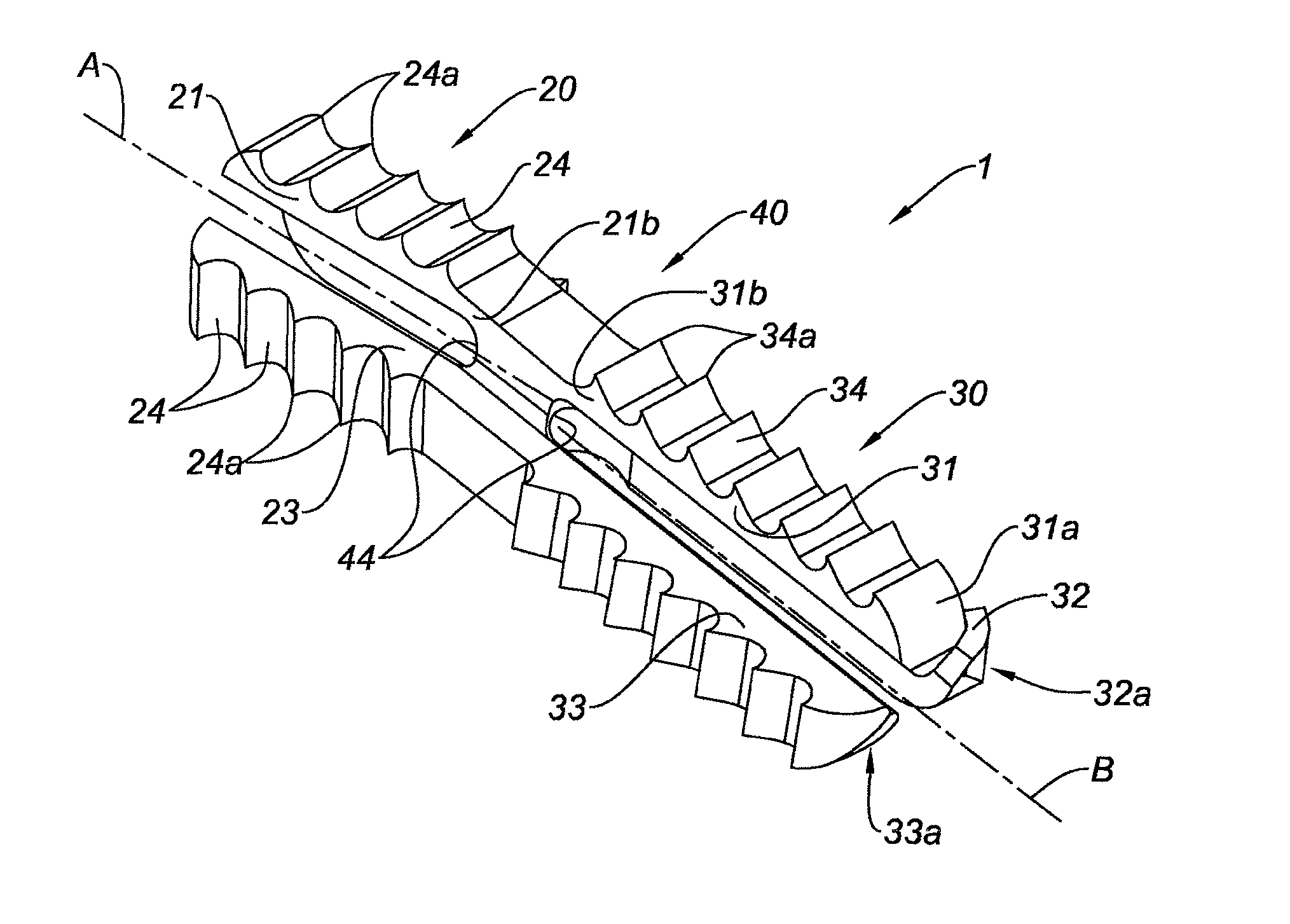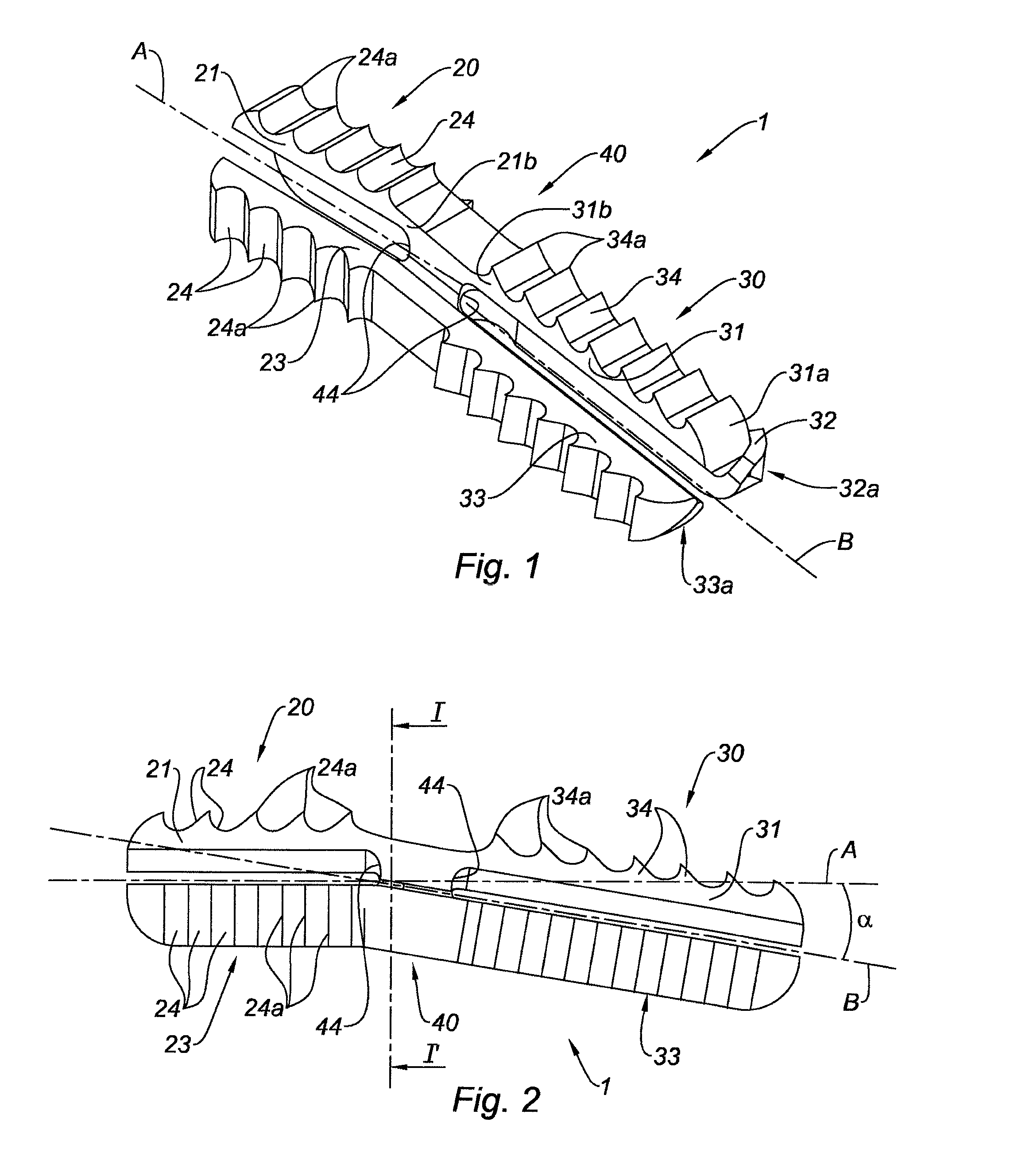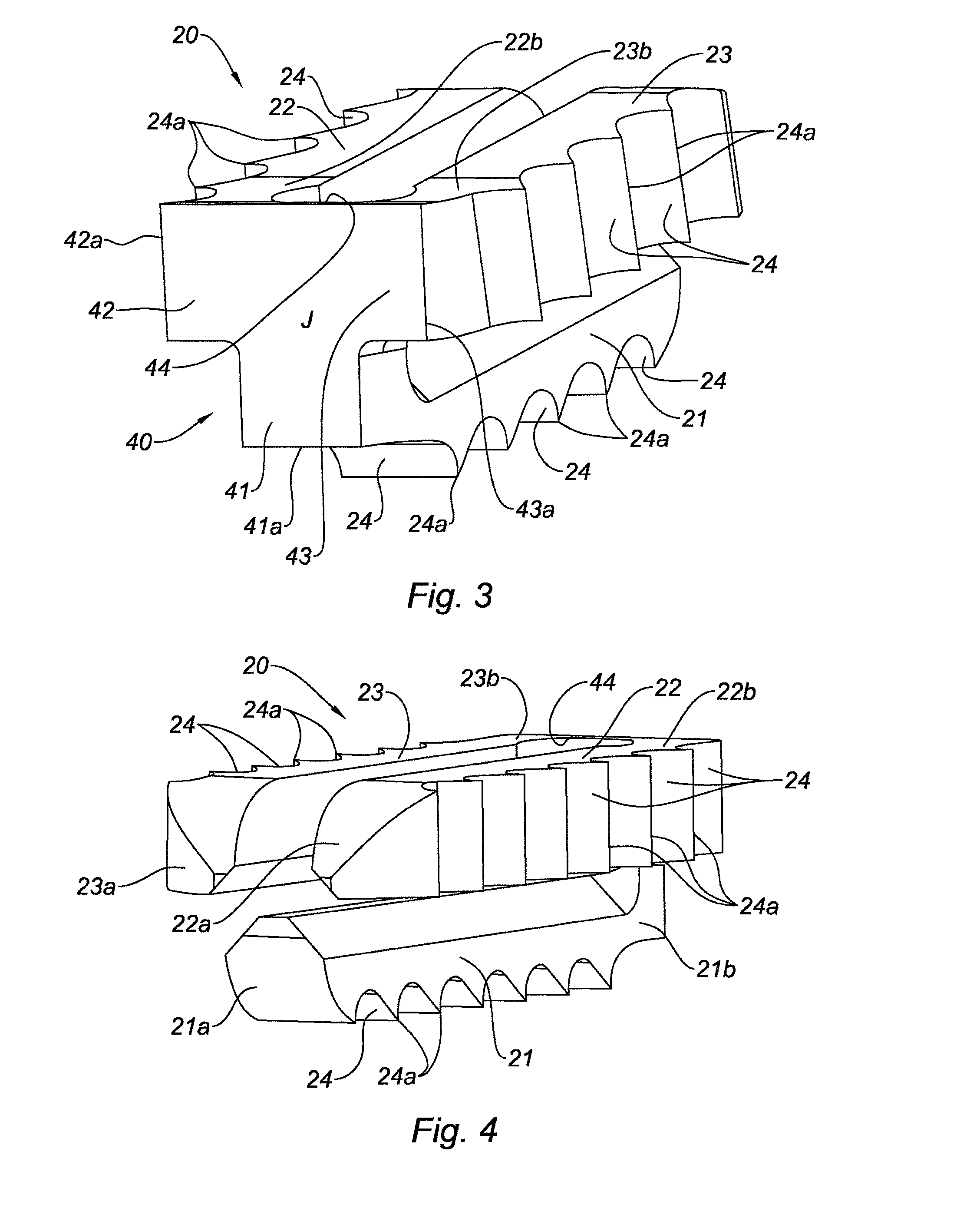Arthrodesis implant
a technology of orthopaedic implants and implants, applied in the field of medical implants, can solve problems such as corns, corns, corns, etc., and achieve the effects of reducing the risk of fracture, and improving the quality of li
- Summary
- Abstract
- Description
- Claims
- Application Information
AI Technical Summary
Benefits of technology
Problems solved by technology
Method used
Image
Examples
Embodiment Construction
[0029]FIGS. 1 to 3 show an implant 1 as claimed in the invention for realizing an arthrodesis. The implant 1 includes a first part 20, with an elongated shape overall, having a longitudinal axis A, a second part 30, also with an elongated shape overall and having a longitudinal axis B, and a central core 40 connecting the first part 20 to the second part 30. In the example shown, the longitudinal axis A and the longitudinal axis B form between them an angle α: said angle α can vary by about 0 to 30°, for example from 10 to 20°, in particular in order to adjust the implant of the invention to the anatomy of the part of the human body to be treated, for example the foot or the hand. In one embodiment not shown, the angle α can be zero: in such a case, the first part and the second part are located in line with one another.
[0030]As can be seen in FIG. 3, the central core 40 is a solid body, the cross section of which through the plane II′ (see FIG. 2) perpendicular to the longitudinal ...
PUM
| Property | Measurement | Unit |
|---|---|---|
| angle | aaaaa | aaaaa |
| angle | aaaaa | aaaaa |
| angle | aaaaa | aaaaa |
Abstract
Description
Claims
Application Information
 Login to View More
Login to View More - R&D
- Intellectual Property
- Life Sciences
- Materials
- Tech Scout
- Unparalleled Data Quality
- Higher Quality Content
- 60% Fewer Hallucinations
Browse by: Latest US Patents, China's latest patents, Technical Efficacy Thesaurus, Application Domain, Technology Topic, Popular Technical Reports.
© 2025 PatSnap. All rights reserved.Legal|Privacy policy|Modern Slavery Act Transparency Statement|Sitemap|About US| Contact US: help@patsnap.com



